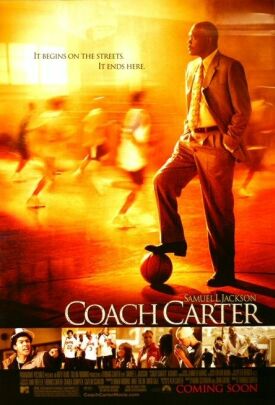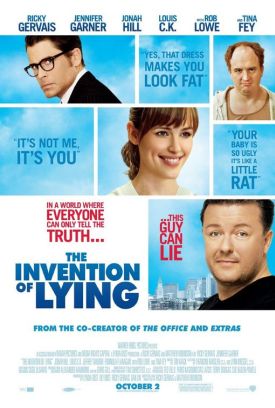Face/Off
Face/Off by John Woo offers what is perhaps the most preposterous plot
ever for an action movie, and that is saying something. Most postmodern
action thrillers—see, for instance, Speed 2 and Con
Air—aspire to nothing higher than nudging you in the ribs from time to
time to remind you that you are watching a movie. They make in-jokes out of the
self-consciously cinematic quality of their characters and situations and
images. Face/Off, by contrast, is what we might call metaphysical
postmodernism. Here the cinematic clichés are put together in such a way
as to raise (well, sort of) serious philosophical questions about identity, and
moral agency and family loyalty and other heavy stuff.
It’s an original idea, but not enough
of one to overcome the inertia of the stock footage of blasting and shooting and
fighting.
For Woo starts with a basic action-adventure flick with lots of fist- and
kick-fights, gunplay and explosions centered around a classic confrontation
between a cop and a criminal mastermind. To this he adds a personal grudge
between the cop (actually FBI man) and the c-m because the c-m killed the
cop’s five year old son
(inadvertently—he was trying to kill the cop). In addition, he has thrown
in some cop-on-the-edge stuff—sexual frustration with the wife and
father-daughter tensions with a precocious tearaway teenager—and the usual
humanizing touches for the bad guy—tenderness for a brother, a secret
love-child with his mistress. So far, familiar. But then comes the touch of
originality: he switches the cop and the criminal.
In real life, this could not happen, but the great thing about being a
postmodern filmmaker is that you don’t
have to worry about real life. Instead, you just produce some technobabbling
scientist and all of a sudden a surgeon is removing the face of the cop, Sean
Archer (John Travolta) and transplanting in its place the face of his adversary,
Castor Troy (Nicholas Cage). The aim of this top secret operation is for Archer
to impersonate Troy in the maximum security,
“Erewhon”
prison ( “the Geneva convention does
not apply here; Amnesty International
doesn’t know we
exist” ) where his
brother—inevitably called
“Pollux”
(Alessandro Nivola) is being held and find out when he plans to blow up L.A. But
Castor, who Archer is assured is “a
turnip” after his last encounter with
the FBI, comes suddenly to life.
“Nothing like having your face cut off
to disturb your sleep,” he says. So he
captures the doctor and forces him to sew
Archer’s face on him, thus
completing the exchange. He also kills everyone who knows about it, so that poor
old Sean is apparently stuck in the hell-hole of a prison permanently.
Having swallowed the camel of this transformation, there is no point in
straining at the gnat of, say, Sean’s
daring escape from Erewhon, or all the near-death experiences that both he and
Castor (each now playing the other part) survive in the increasingly violent and
very protracted finale. The interesting things for those of us over the age of
twelve, who have seen plenty of cinematic explosions before, are
Castor’s partial domestication under
the influence of Sean’s unfamiliar
suburban existence, the breath of fresh air he brings into the lives of his wife
(Joan Allen) and daughter (Dominique Swain) and the briefly heady effect of a
whiff of the life of criminal license on Sean himself. Pollux tells the real
Castor that Sean is “beginning to
enjoy being you,” and the latter, who
is always taunting his enemy for not having
“fun,”
replies:
“Good!”
The switch is a humanizing experience for both men and becomes most piquant
when Troy apologizes to Archer’s
wife, to whom he is presumably beginning to feel genuinely close,
“for all those years when I was an
insufferable bore.” Likewise, Archer
as Troy apologizes to his mistress, Sasha (Gina Gershon), for his alter
ego’s behavior.
“I’ve
said and done some things that made your life harder. Look, Sash,
I’m not the same person you remember
and for what it’s worth,
I’m
sorry.” This is both funny and
serious, as is the moment when Sean’s
wife takes him to the grave of their son and says to the man who is really the
murderer: “He took our baby, Sean; he
took our little boy.” Troy willingly
holds her hand and comforts her—for what he himself did. Is this
contrition? Does it deserve forgiveness?
Unfortunately, we never really find out. In the end the commercial demands of
the action-thriller remain paramount, which means that the switcheroo has to be
unswitched and the bad guy has to reaffirm his evil nature by getting
what’s coming to him from the good
guy. Forget all that stuff (and quite right too!) about moral equivalence. Woo
is only able to touch lightly on the ostensibly serious issues he
raises—which may be, after all, for the best. Since such a complete
exchange of identities is impossible, it would only serve to make the joke too
ponderous to explore the issue any more deeply. I would, however, have liked Woo
to devote a little more attention to another interesting detail, which is the
fiendishly devious Troy’s decision to
defuse his own bomb on television, become a national hero and thus make more
money than he could have made in his own person, holding the city to
ransom—and with less risk of getting caught.
That was what, on a small scale, the FBI originally thought that Richard
Jewell was up to in Atlanta, and the fact that they found out he
wasn’t
doesn’t mean that someone else
won’t get the same idea sooner or
later. This was the one bit of the film that could be substantially true, and it
deserved to occupy a more central place in it—if only to offset the torpor
induced by the increasingly boring bangs of its last 20 minutes.
Discover more from James Bowman
Subscribe to get the latest posts to your email.





![Inglorious Bastards [QT, note SP]](https://jamesbowman.net/wp-content/uploads/2009/08/ingloriousbastards.jpg)

